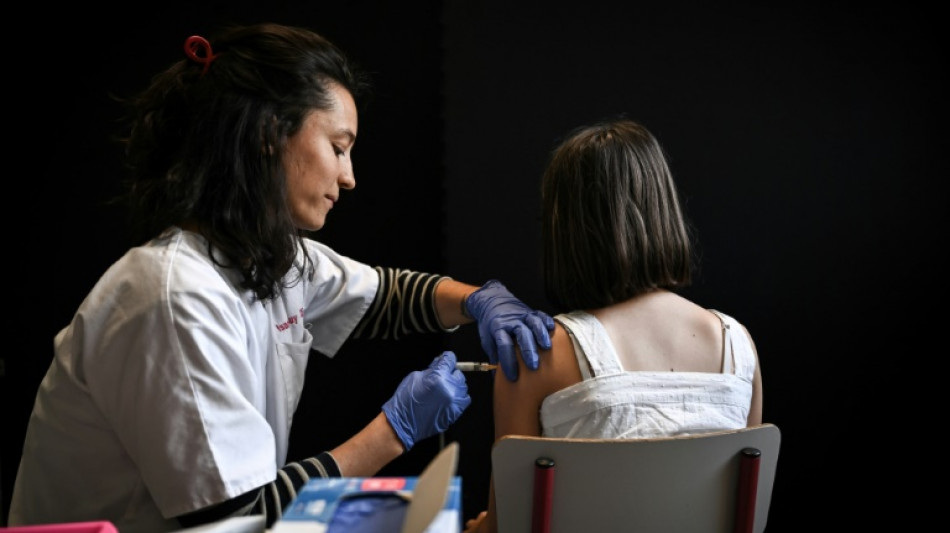
-
 Leo XIV celebrates first Christmas as pope
Leo XIV celebrates first Christmas as pope
-
Diallo and Mahrez strike at AFCON as Ivory Coast, Algeria win

-
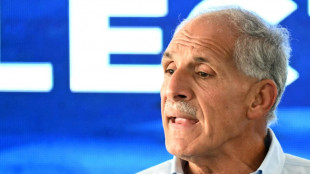 'At your service!' Nasry Asfura becomes Honduran president-elect
'At your service!' Nasry Asfura becomes Honduran president-elect
-
Trump-backed Nasry Asfura declared winner of Honduras presidency

-
 Diallo strikes to give AFCON holders Ivory Coast winning start
Diallo strikes to give AFCON holders Ivory Coast winning start
-
Spurs captain Romero facing increased ban after Liverpool red card

-
 Bolivian miners protest elimination of fuel subsidies
Bolivian miners protest elimination of fuel subsidies
-
A lack of respect? African football bows to pressure with AFCON change

-
 Trump says comedian Colbert should be 'put to sleep'
Trump says comedian Colbert should be 'put to sleep'
-
Mahrez leads Algeria to AFCON cruise against Sudan

-
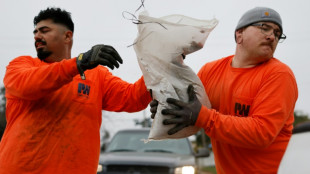 Southern California braces for devastating Christmas storm
Southern California braces for devastating Christmas storm
-
Amorim wants Man Utd players to cover 'irreplaceable' Fernandes

-
 First Bond game in a decade hit by two-month delay
First Bond game in a decade hit by two-month delay
-
Brazil's imprisoned Bolsonaro hospitalized ahead of surgery

-
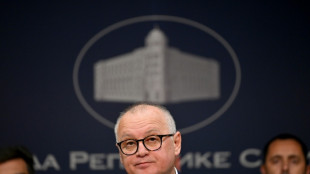 Serbia court drops case against ex-minister over train station disaster
Serbia court drops case against ex-minister over train station disaster
-
Investors watching for Santa rally in thin pre-Christmas trade

-
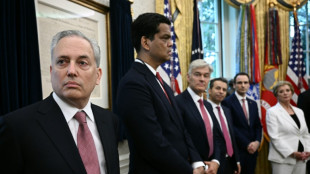 David Sacks: Trump's AI power broker
David Sacks: Trump's AI power broker
-
Delap and Estevao in line for Chelsea return against Aston Villa

-
 Why metal prices are soaring to record highs
Why metal prices are soaring to record highs
-
Stocks tepid in thin pre-Christmas trade

-
 UN experts slam US blockade on Venezuela
UN experts slam US blockade on Venezuela
-
Bethlehem celebrates first festive Christmas since Gaza war

-
 Set-piece weakness costing Liverpool dear, says Slot
Set-piece weakness costing Liverpool dear, says Slot
-
Two police killed in explosion in Moscow
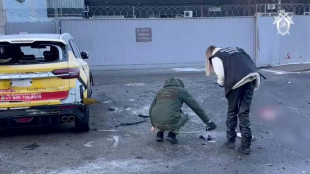
-
 EU 'strongly condemns' US sanctions against five Europeans
EU 'strongly condemns' US sanctions against five Europeans
-
Arsenal's Kepa Arrizabalaga eager for more League Cup heroics against Che;sea

-
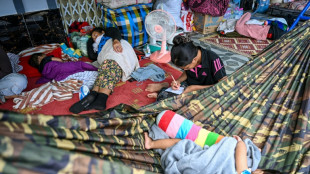 Thailand-Cambodia border talks proceed after venue row
Thailand-Cambodia border talks proceed after venue row
-
Kosovo, Serbia 'need to normalise' relations: Kosovo PM to AFP

-
 Newcastle boss Howe takes no comfort from recent Man Utd record
Newcastle boss Howe takes no comfort from recent Man Utd record
-
Frank warns squad to be 'grown-up' as Spurs players get Christmas Day off

-
 Rome pushes Meta to allow other AIs on WhatsApp
Rome pushes Meta to allow other AIs on WhatsApp
-
Black box recovered from Libyan general's crashed plane

-
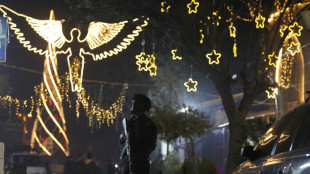 Festive lights, security tight for Christmas in Damascus
Festive lights, security tight for Christmas in Damascus
-
Zelensky reveals US-Ukraine plan to end Russian war, key questions remain

-
 El Salvador defends mega-prison key to Trump deportations
El Salvador defends mega-prison key to Trump deportations
-
Stranger Things set for final bow: five things to know

-
 Grief, trauma weigh on survivors of catastrophic Hong Kong fire
Grief, trauma weigh on survivors of catastrophic Hong Kong fire
-
Asian markets mixed after US growth data fuels Wall St record

-
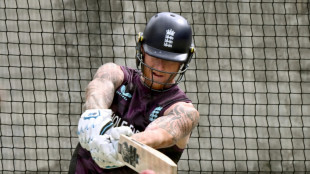 Stokes says England player welfare his main priority
Stokes says England player welfare his main priority
-
Australia's Lyon determined to bounce back after surgery
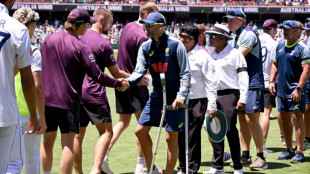
-
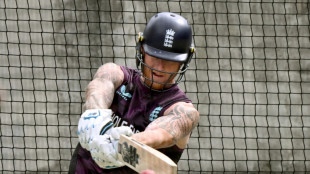 Stokes says England players' welfare his main priority
Stokes says England players' welfare his main priority
-
North Korean POWs in Ukraine seeking 'new life' in South

-
 Japanese golf star 'Jumbo' Ozaki dies aged 78
Japanese golf star 'Jumbo' Ozaki dies aged 78
-
Johnson, Castle shine as Spurs rout Thunder

-
 Thai border clashes hit tourism at Cambodia's Angkor temples
Thai border clashes hit tourism at Cambodia's Angkor temples
-
From predator to plate: Japan bear crisis sparks culinary craze
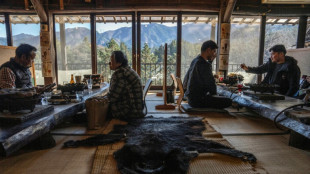
-
 Asian markets mostly up after US growth fuels Wall St record
Asian markets mostly up after US growth fuels Wall St record
-
'Happy milestone': Pakistan's historic brewery cheers export licence

-
 Chevron: the only foreign oil company left in Venezuela
Chevron: the only foreign oil company left in Venezuela
-
US denies visas to EU ex-commissioner, four others over tech rules


US study highlights success story of HPV vaccination
A new study published Thursday by researchers at the US Centers for Disease Control and Prevention (CDC) highlights the powerful impact of the human papillomavirus (HPV) vaccine, first approved in 2006, in preventing precancerous lesions detected through cervical screening.
HPV is the most common sexually transmitted infection, and certain strains can lead to cervical, vulvar, vaginal, and other cancers later in life. Each year, around 14 million Americans contract HPV, and the virus is responsible for approximately 10,800 cases of cervical cancer annually.
Since 2008, the CDC's Human Papillomavirus Vaccine Impact Monitoring Project has tracked trends in precancerous cervical lesions to evaluate the vaccine's effectiveness.
The findings are striking. Among women aged 20–24 screened for cervical cancer between 2008 and 2022, rates of moderate-to-high-risk precancerous lesions dropped by about 80 percent.
For women aged 25–29, the decline was 37 percent -- a smaller reduction the researchers attributed to many in this age group receiving the vaccine later in life as part of a "catch-up" vaccination effort, which is less effective.
In the US, the HPV vaccine was first approved in 2006 for girls and women, with boys and men added to the recommendations in 2011. Today, the CDC recommends routine HPV vaccination for boys and girls ages 11–12 to prevent infections that can lead to cancer later in life.
HPV includes over 200 different strains, some of which cause genital warts. Two particular strains -- 16 and 18 -- are classified as high-risk for cancer.
While cervical cancer is treatable if caught early, it is still responsible for around 4,400 US deaths per year.
The US Preventive Services Task Force recommends women ages 21 to 65 receive a Pap smear test once every three years and that women over 30 get high-risk HPV test every five years.
"The data are consistent with a considerable impact from the US HPV vaccination program on cervical precancers, with the largest decreases in the youngest age group for which benefit of vaccination would first be observed," wrote the authors in the CDC's Morbidity and Mortality Weekly Report.
They added that as vaccinated women age, further declines in cervical precancers are expected in older groups.
One limitation of the study was that individual vaccination status was not recorded, meaning the study could not directly confirm causality. However, the authors noted that "no other plausible explanations" have been identified for the sharp decline in precancers.
The study's positive findings come as outspoken anti-vaccine advocate Robert F. Kennedy Jr. begins his tenure as US health secretary.
Under his leadership, the Food and Drug Administration abruptly canceled a scheduled meeting with experts on Wednesday to discuss the development of next year's flu vaccines.
Y.Nakamura--AMWN


